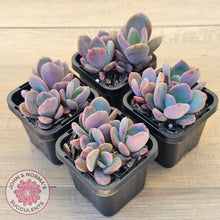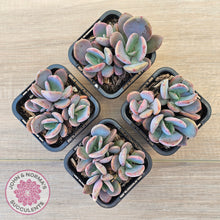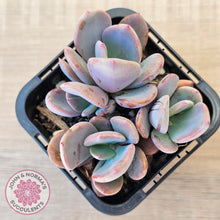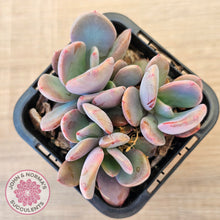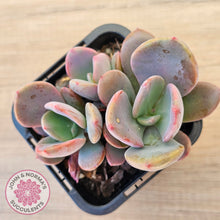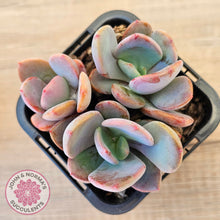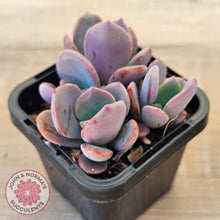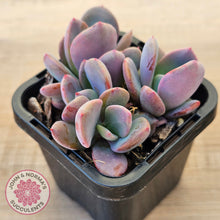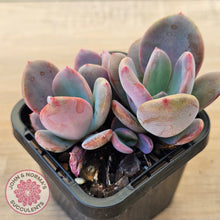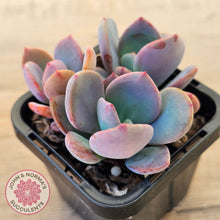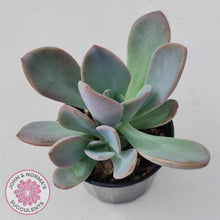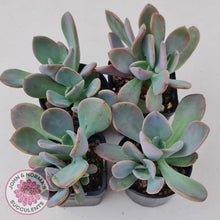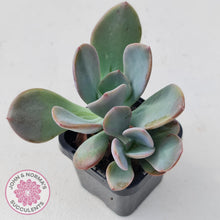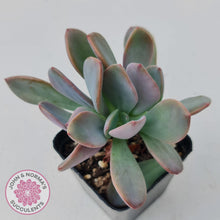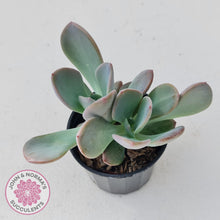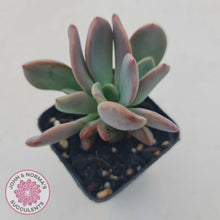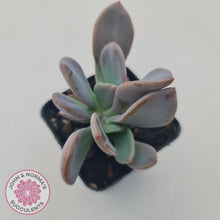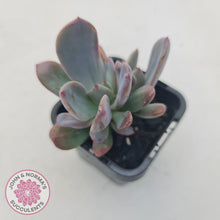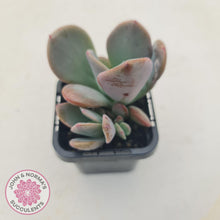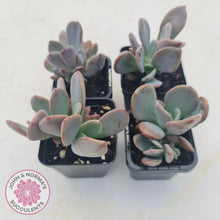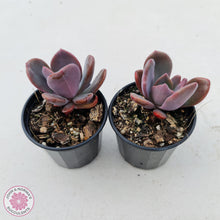
Pachyveria 'Blue Tongue' is an eye-catching succulent that boasts a rosette of blue-green leaves with powdery wax coating and tiny hairs, giving it a soft, velvety texture. This hybrid succulent was created by Dave Poulgrain in 1999 in Queensland, Australia, and is a cross between Pachyphytum oviferum and Echeveria cante.
This plant prefers full sun to partial shade and requires a potting soil mix that drains quickly. It is a tender succulent that needs to be brought indoors during the winter to survive. Water it moderately in spring to Autumn, using the "soak and dry" method. Fertilize it with a slow-release fertilizer in spring or a diluted liquid fertilizer less often than recommended. Repot the plant only when it is actively growing.
One of the unique features of Pachyveria 'Blue Tongue' is its pink hues that appear on the tongue-shaped leaves. The plant can grow up to 17 cm in diameter, usually solitary or producing a few offsets. In summer, it produces bell-shaped red flowers that appear in clusters on leafy stalks.
This succulent can withstand temperatures as low as -1.1°C, making it suitable for growing in a variety of climates. It is usually propagated from leaves or offsets in spring, making it easy to grow and share with others.
Overall, Pachyveria 'Blue Tongue' is a charming succulent that adds a touch of unique color and texture to any indoor or outdoor garden. Its striking appearance and easy care make it an excellent choice for both novice and experienced gardeners alike.
Pachyveria 'Blue Tongue' plants for sale shown in 70mm pot. You will receive same or similar plants as those shown in images 1 to10. Colours will vary depending on time of year and growing conditions.
First time customers... Please read our Shipping Guide, in top or bottom menu, before placing your order.
Please Note:
- All plants are sent bare rooted with no pots and soil, or minimum soil only.
- Due to the drying process necessary for sending plants through the mail, plants may look slightly different than images shown on our website
- Some plants, may look wrinkled when they arrive, may be somewhat limp, or soft to the touch. This is normal as they have been dried out for for a number of days before shipping to avoid rotting in the mail.
- Succulents are very hardy plants and they will recover quickly, providing you unpack them as soon as you receive them follow some simple care instructions you will find with your order.
If you have any questions or concerns at all, please message us via our Facebook page at John & Norma's Succulents for the fastest Response.





















